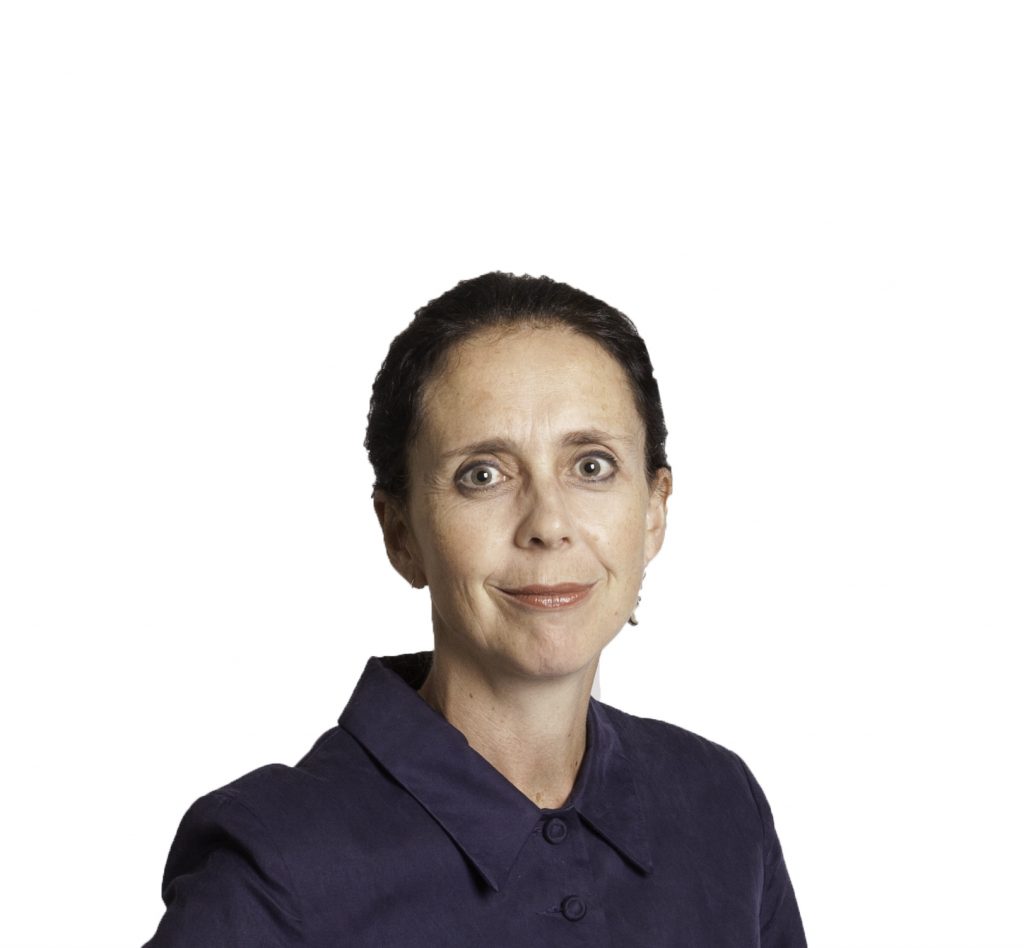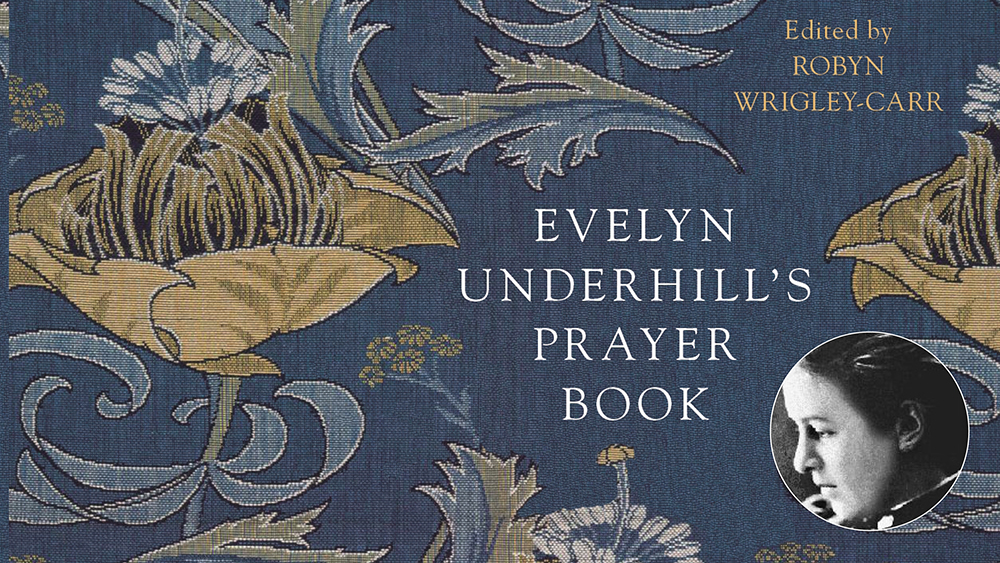Prayers of a legendary mystic reborn
Evelyn Underhill’s prayers get a new lease on life
As Robyn Wrigley-Carr picked up a beautiful leather-bound art book with Celtic clasps at the House of Retreat at Pleshey, a village north of London, she realised she had made an extraordinary discovery.
“I open it up, and there’s all this beautiful handwriting, sort of calligraphy, and I suddenly realise that I have something that scholars assumed had been lost decades ago,” she says.
What the senior theology lecturer at Sydney’s Alphacrucis College had in her hands was the prayer book of modern mystic Evelyn Underhill, which had been lost for decades.
“It suddenly dawned on me what I had in my hands, and all these other scholars have said it’s not existent any more.” – Robyn Wrigley-Carr
Evelyn Underhill was the most widely read writer in English on prayer, contemplation, spirituality, worship and mysticism in the first half of the 20th century. Her 1911 book, Mysticism: A Study in the Nature and Development of Man’s Spiritual Consciousness, is an oft-reprinted classic which continues to influence people to this day.
Christian mysticism appeals to people who want to experience union with Christ not just as a theological reality but in everyday life. When practised by people with a deep knowledge of Scripture, such as Underhill, it ties people to revealed truth.
In 1921 Underhill became the first woman to lecture in theology at Oxford University and between 1924 and 1938 she compiled two prayer books for use when conducting spiritual retreats at Pleshey. The books combined prayers from theologians and writers in Christian spirituality between the 3rd and 20th centuries with her own richly metaphorical and theologically deep prayers.
“So it was a working resource for her and it suddenly dawned on me what I had in my hands, and all these other scholars have said it’s not existent any more. I was stoked,” says Robyn, who had gone to the UK to research the spiritual links between her PhD subject, Friedrich von Hugel, and Evelyn Underhill.
“I had this vision above my head like an arc … of the cloud of witnesses that Paul talks about in Hebrews.” – Robyn Wrigley-Carr
So instead of staying at Pleshey for a couple of hours before immersing herself in the “very important university archives”, Robyn changed her plans and spent the next week copying out the entire book. As she was working, Robyn says she had a vision of people cheering her on for having found long-buried treasure and copying it out to make it available for the benefit of Christians today.
“Some of the handwriting was horrible and you’re trying to decipher words and I was working long hours, but it was quite extraordinary because as I was working on copying it out I had this vision above my head like an arc … of the cloud of witnesses that Paul talks about in Hebrews.”

Robyn Wrigley-Carr
To sceptics who would dismiss her vision as the by-product of exhaustion, Robyn says: “it was what St Teresa of Avila would call an intellectual vision. So it’s not like I’m seeing it like this table – but there’s a real sense of something there. I can remember the number of people, I can remember the form and how far above me and just this sense of the cloud of witnesses.
“Now, if you looked in the commentary you’d probably be told the cloud of witnesses are the historical figures – Abraham and so on – but for me there was such a sense of the cloud of witnesses as the men and women of God who have gone before us.”
She found something refreshing in this sense of being part of a worldwide community of Christians through history – “it’s like I’m not alone.”
Robyn discovered how the prayer book got lost from a letter in an archive box at Pleshey from a Canadian priest, who had found it years ago in an Oxfam shop and used it for his personal devotions until 2004, when he posted it to Pleshey. Someone had put it in a suitcase for safekeeping and forgotten about it.
“So I just turned up at the right time and it was very much a sense of ‘this is exactly what I should be doing at this point in time.’ I could see how my previous study equipped me with the skills to be able to sort it out … and so I got it all sorted and went back for a second trip to check the original with my copied version to find that, mysteriously, a second prayer book, which was the prior one, had emerged out of thin air.”
“She’s a very poetic type of woman – she wrote nearly 40 books – so she has a beautiful turn of phrase.” – Robyn Wrigley-Carr
So Robyn copied that book out too and the two books have now been published in one volume, Evelyn Underhill’s Prayer Book, 75 years after Underhill’s death.
“What’s really special about this is she’s carefully chosen these prayers for leading spiritual retreats but they could be used for church services or camps or private devotional use. She’s also used prayers from different branches of the church, so there’s Catholic prayers and Anglican prayers and Orthodox prayers and she had some different liturgies as well as her own prayers, which are very passionate and earthy and visual. She’s a very poetic type of woman – she wrote nearly 40 books – so she has a beautiful turn of phrase.
“So I just modernised the language … and I just had a real conviction that I wanted to donate all of the royalties to Pleshey because these are her words and her prayers, they’re not mine – they’re not even really her prayers, they’re the prayers of the church. The retreat house has just done a major renovation to make it more accessible for wheelchairs, so it just seemed the perfect place for the money to go.”
“The whole thing was set up by God and I just turned up and participated in what he’d already set up.” – Robyn Wrigley-Carr
Robyn says the whole experience has cultivated in her a sense of expectancy that God is already setting things up and we just need to have the eyes to see what he is doing.
“If I think about the time when I was sitting in the library at the retreat house writing it out, there was such a strong conviction of – the theological term is the prevenience of God – this whole idea that God goes before us and he sets things up,” she says.
“A lot of people spend a lot of time asking God to bless their plans and this was a situation where the whole thing was set up by God and I just turned up and participated in what he’d already set up. I could see, looking back 20 years, all the steps that had got to that moment and there was such a joy for me to be doing what I was supposed to be doing at that point in time.”
Funded by a summer fellowship from Anglican Deaconess Ministries, Robyn is now researching and writing a book called Soul Friends: Journeying with Women of Wisdom Through the Ages, which will chronicle the lives and devotional writings of a diverse group of women who did extraordinary things for God and had rich personal lives.
“The purpose of the book is to inspire young women … it’s sort of a window of the soul for some of these women.”


